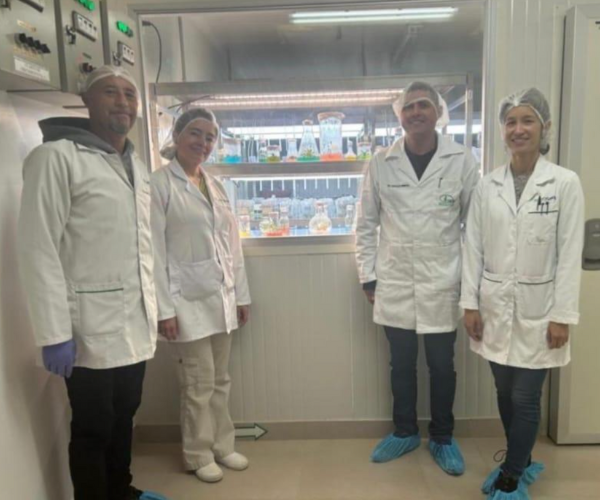Researchers from Ecuador, Colombia, and Argentina collaborate to develop innovative gene editing techniques aimed at improving potato quality and sustainability

As part of the gene editing project for the improvement of plant and animal species, funded by FONTAGRO, researcher Santiago Meneses from the National Institute of Agricultural Research (INIAP) in Ecuador conducted a technical visit to the Tibaitatá Research Center of AGROSAVIA in Colombia from February 17 to 19, 2025.
The visit aimed to exchange experiences in developing a plant regeneration protocol from protoplasts, a key technique for genetic crop editing. This protocol, based on the one developed by the National Institute of Agricultural Technology (INTA) in Argentina for Tuberosum group potatoes, is now being implemented for gene editing in tetraploid potatoes of the Andigenum group.
The application of this innovative technology will enhance potato attributes, including the reduction of acrylamides—compounds that can be harmful when formed during certain cooking processes. This scientific collaboration strengthens regional cooperation among institutions and paves the way for crop improvement through cutting-edge biotechnology tools.




